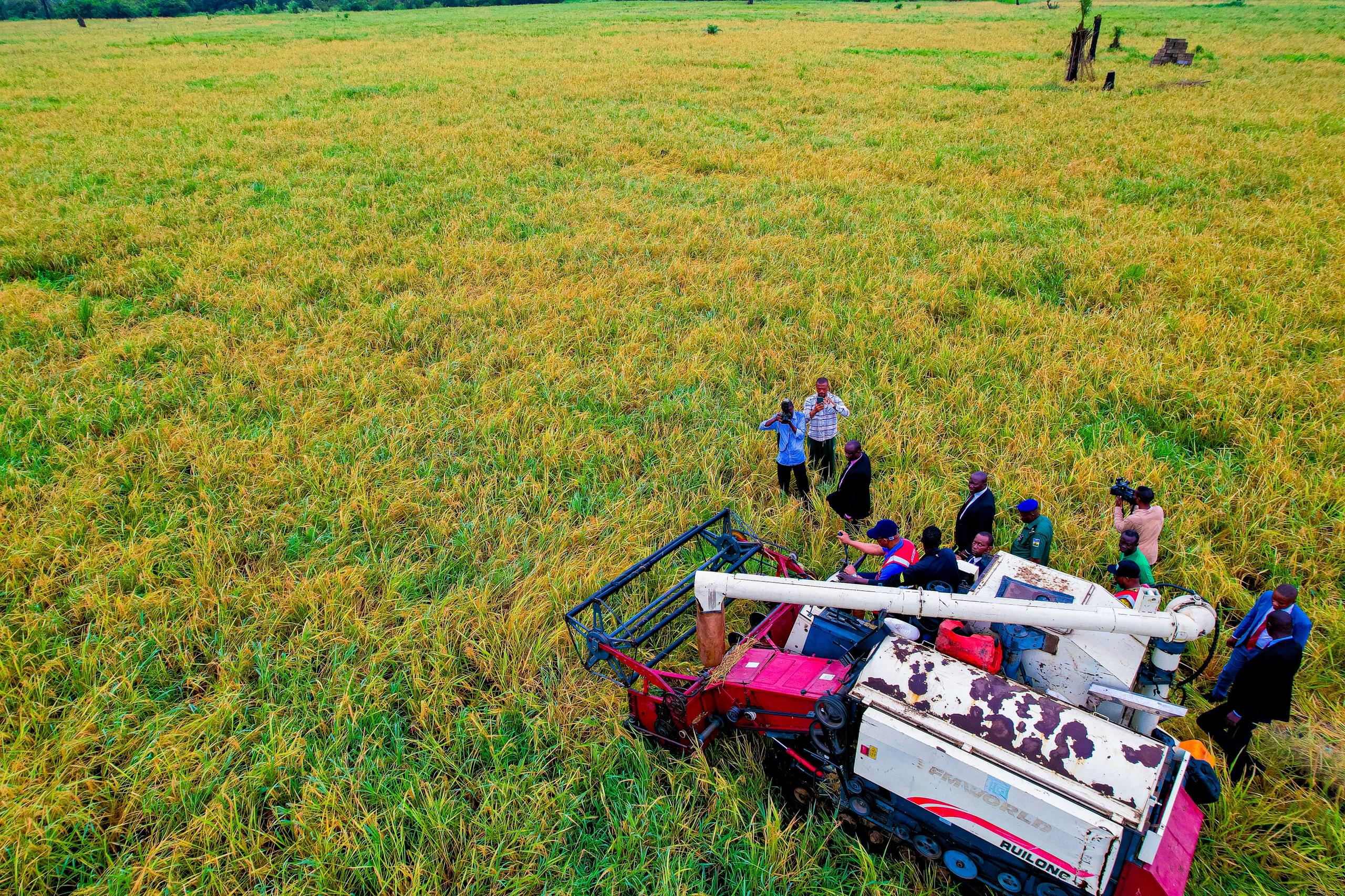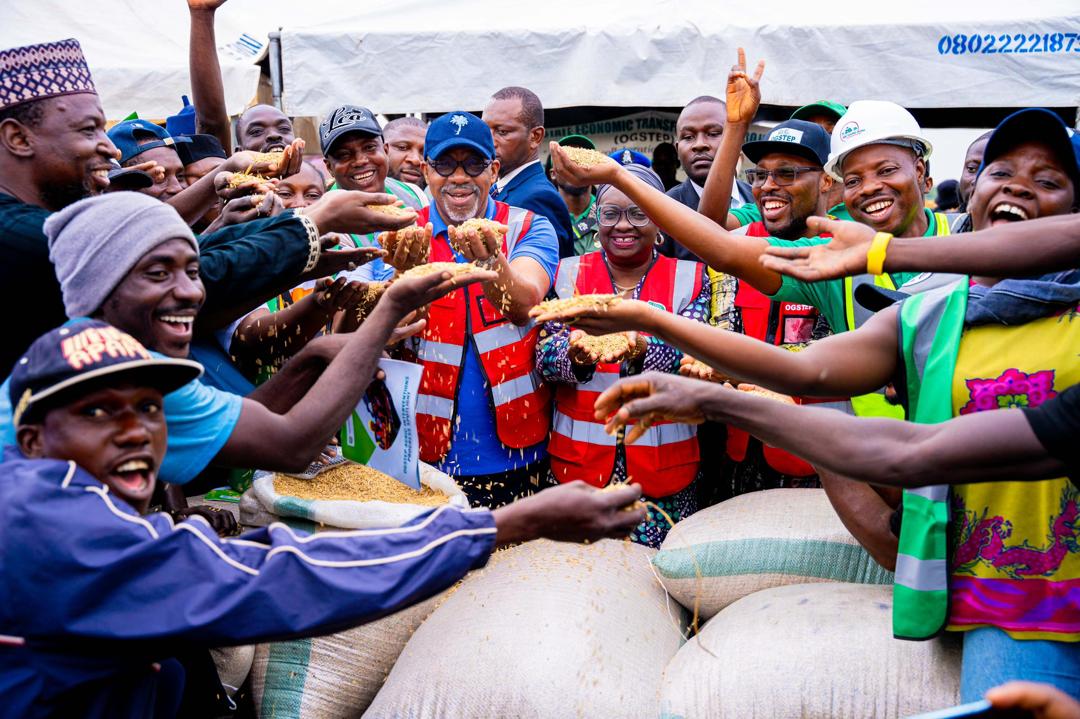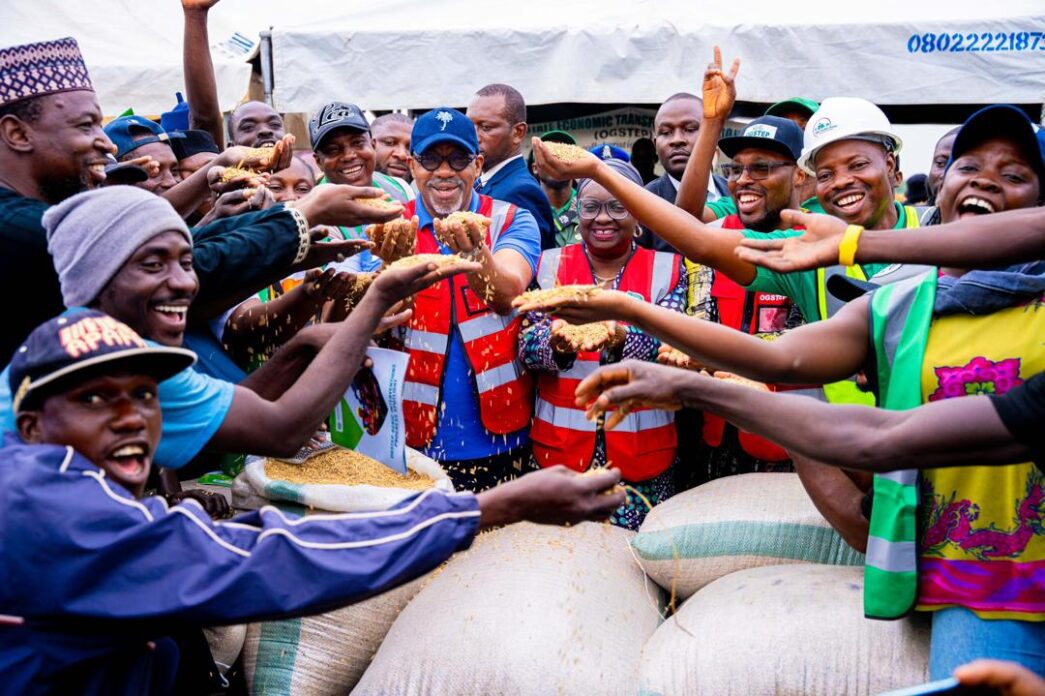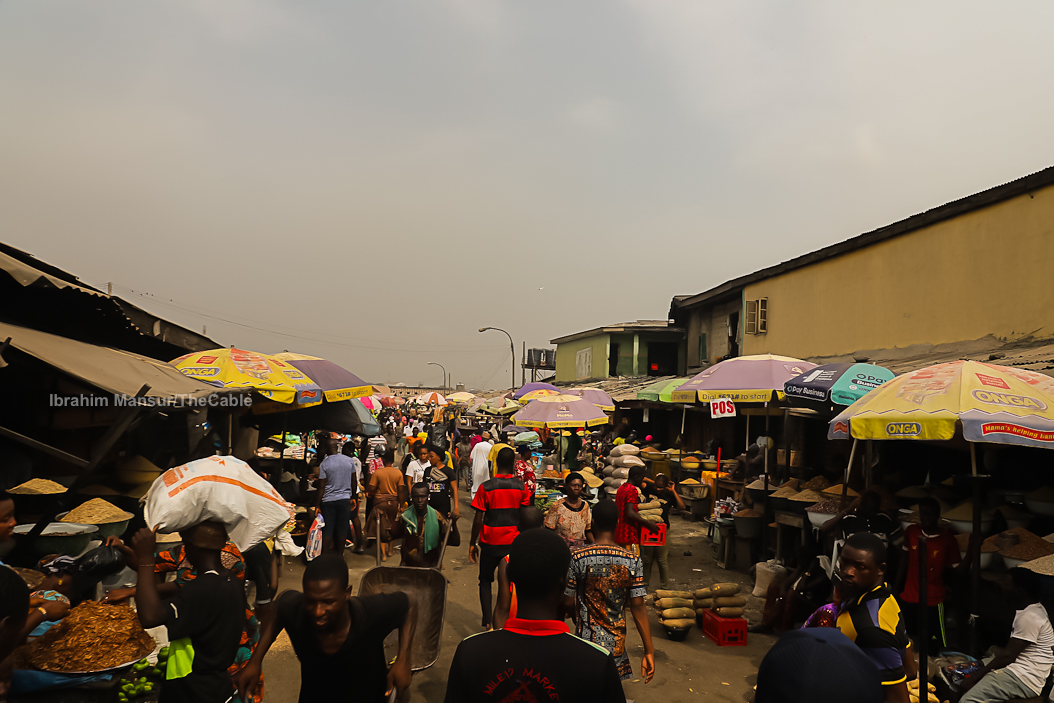BY LEKAN ADENIRAN
There is a revolution taking place in the agricultural sector in Ogun State. It is palpable in the air and spreads across the length and breadth of the Gateway State, involving the young and the old, men and women. Indeed, agriculture and food security form one of the fulcrums of Prince Dapo Abiodun’s administration, as encapsulated in the ISEYA mantra. The others are infrastructure development, social welfare and well-being, education and human capital development, and youth empowerment. Agriculture plays a crucial role in combating hunger by enhancing food security, improving nutrition, and fostering sustainable development.
Increasing agricultural productivity ensures a steady supply of food and raw materials for the increasing number of industries. Self-sufficiency in food production ensures food security, which in turn guarantees a stable polity. More profound in this respect is the recent public outcry over hunger, occasioned by the high prices of food items in the market, which resulted in demonstrations in parts of the country.
But the Dapo Abiodun-led administration is taking the bull by the horns with its focus on stemming the pangs of hunger in the state. Ogun State has a landmass of 16,000 square kilometers, with more than 80 percent arable land capable of sustaining both large and subsistence farming. His administration recognizes the critical role agriculture plays in the economy, providing employment, income, and nutrition to the population. The state government’s agricultural policies are multifaceted, focusing on enhancing productivity, ensuring food security, and addressing hunger through a combination of infrastructure development, empowerment programs, technological innovation, and strategic partnerships. These initiatives aim not only to improve the livelihoods of farmers but also to create a sustainable food system that benefits all residents of the state.
On Monday, August 19, Governor Abiodun declared that Ogun State was ready to feed Nigeria as its food basket. The pronouncement was made at the harvest of a 200-hectare rice farm in Magboro, Obafemi Owode Local Government Area of the state. The rice farm is the latest in a series of interventions in the agriculture sector as the government scales up food production to feed its teeming populace. The farm is the brainchild of the Ogun State Economic Transformation Project (OGSTEP), a World Bank-assisted initiative aimed at driving economic growth and development in the state. The OGSTEP agriculture sector encompasses the development of value chains, ensuring off-taker arrangements, creating jobs, and stimulating economic growth across the state. It also seeks to empower smallholders by providing the needed tools and skills to adopt modern farming techniques.
Advertisement

The rice farm, dubbed Alubarika Cluster, has 200 farmers on 200 hectares of land, with each farmer being allocated one hectare to farm. The farm has a seven-metric-ton yield per hectare, which could translate to 1,400 metric tons for 200 hectares of milled rice, with an efficiency yield of about 70 percent. This would also translate to about 20,000 bags of milled rice per cycle.
Flagging off the harvesting season, Governor Abiodun said Ogun State is joining other states like Lagos, Kebbi, and Bayelsa in large-scale production of locally grown rice for the consumption of the people, while also fostering economic development, creating jobs, and improving livelihoods within the communities. “Our vision for Ogun State is one where agriculture drives economic growth, creates jobs, and sustains our local communities. This is a 200-hectare rice farm. The farmers are mostly youths and women from different parts of the country who have been allocated one hectare each. This project started in April this year. They began planting in May, and today we are already harvesting, making it a three-month cycle. It means that we can do this three times a year at an average yield of seven metric tons per hectare. So, the harvest is 1,400 metric tons per cycle on 200 hectares. This translates to 20,000 bags of milled rice per cycle. 20,000 bags of milled rice per cycle should be estimated to cost about N1 billion. So, these 200 farmers, made up of women and youths across the country who farm here in just three months, have a revenue of N1 billion. If they do this three times this year, they will earn N3 billion. We have no business being hungry in Nigeria.
Advertisement
“In this place, I have 12,500 hectares of land, and all we have farmed is 200 hectares that yielded N1 billion for 200 farmers. From here, I can feed the rest of the country. We will scale up this project immediately from 200 to 2,000 hectares. We can generate N30 billion in revenue. We can take significant steps towards realizing that vision of making Ogun State the food basket of this country,” Governor Abiodun said.
The governor said the rice farmers were provided the needed incentives, including training, to ensure a bountiful harvest. He said: “A project of this magnitude is about more than just rice production; it is about people and ensuring that the benefits of this intervention extend to the entire community. We are committed to involving local farmers, particularly those within the Alubarika Cluster, ensuring they actively participate and benefit from this initiative. To support this, the farmers have also received premium agro-inputs at 50% of the cost. These inputs include high-yield, disease-resistant rice seeds, quality fertilizers, and environmentally friendly pest control products, all aimed at enhancing crop growth, yield, and income. Before production commences, all groups/clusters are assured of produce off-take and harvest, with binding memorandums of understanding between each group and their respective off-takers.”
The governor disclosed that as of today, 30,138 beneficiary farmers are aggregated into groups and clusters. Out of this number, 13,000 are male farmers, 9,000 female farmers, and 8,000 youth farmers who are participating in crop aquaculture and poultry.

Advertisement
Another area of intervention by Abiodun’s administration is in the area of Farm Laboratories. After visiting the Soilless Farm Lab at Awowo in Ewekoro Local Government Area, Governor Abiodun, who was impressed with the farm setup, promised to leverage the achievements of the farm, owned by a young man, Samson Ogbole, by replicating it across the state. The Soilless Farm Lab started the work-and-learn program in September 2020 by taking in over 1,000 trainee farmers between the ages of 18-35 years every three months. It means that while the intakes work for free, they are also learning the new farming technique for free.
Governor Abiodun said that the Ogun Youth Agricultural Programme will leverage the Soilless technique to produce agripreneurs in all parts of the state, starting first in Remoland because of its closeness to the Gateway Agro-Cargo Airport. But while Soilless is churning out 1,000 trainees every three months, the Remo Farm will be upscaled to 2,000 youths every quarter and 8,000 yearly. Speaking on the theme “Transforming Food Systems: Youth Innovation for Human and Planetary Health” during this year’s International World Youth Day celebration at Iperu, the governor said the youth constitute the active majority in society, “endowed with the boundless energy needed to propel socio-economic development, not only within our nation but also for the advancement of humanity.”
“We are going to be introducing the Ogun Youth Agricultural Programme. This program will leverage the Soilless Farm Lab that I saw some time ago in Awowo, Ewekoro Local Government Area of the state. We are replicating what Samson Ogbole has done in Awowo across the state. We are going to start the program in Remoland, and that farm will be training 2,000 youths every three months, meaning that 8,000 youths will be trained within one year. That means we are taking you, training you, and turning you into agripreneurs. You will begin to own your greenhouses. To that extent, the state government, working with Soilless Farm Lab, will provide the land. We will support you while you are in training, support you to set up your greenhouses, and the government will offtake your produce from you,” Prince Abiodun added.
The state government is also delving into wet and dry season farming, a new trend in this part of the country. The southwestern part of Nigeria is noted only for wet season farming, during the rainy season between May and October. But the administration of Prince Abiodun is changing that concept. All-year farming will increase food production and ensure increased revenue for farmers. Speaking during the inauguration of a 13-member State Working Committee (SWC) of the National Agricultural Growth Scheme – AGRO POCKET, Prince Abiodun said Ogun State has identified viable sources of finance through partnerships with the federal government and the African Development Bank (AfDB), under the Policy-Based Operation (PBO), to embark on wet and dry season farming to boost agricultural production.
Advertisement
Ogun was part of a 15-state pilot scheme in 2023 that test-ran dry season farming. “This led to an astronomical increase in wheat yield. The results revealed that an estimated 277,000 hectares of wheat were planted in Nigeria in 2023-2024, representing a 139 percent increase over the previous year’s season. Undoubtedly, this result is the direct impact of the inputs received under the National Agricultural Growth Scheme supported by the African Development Bank,” he stated, adding that the state will be supported in the cassava, maize, and rice value chains with an overall number of 2,400 smallholder farmers on 1,200 hectares of land, where the farmers will pay 25 percent of the cost of inputs while the federal government will pay the remaining 75 percent during the wet season of the year 2024.
The government is also putting in measures to improve crop yields through the provision of inputs for farmers. This includes the provision of 24,000 fertilizers to 12,000 farmers across the state for free and subsidizing farm inputs by 50% for farmers across various categories, including cassava, maize seeds, and agro-chemicals. The government also plans to partner with youth interested in poultry farming by providing broiler birds.
Advertisement
Speaking while announcing the distribution of fertilizers to farmers, Governor Abiodun said his government will be more aggressive in tackling food inflation.
“The initiative symbolizes more than just the distribution of fertilizer. It represents our collective resolve to support the agriculture sector and ensure that farmers have the resources they need to cultivate their land effectively and efficiently. The provision of the right type and adequate amount of fertilizer is crucial to boosting crop yields, enhancing quality, and ultimately securing food supply for our state and the nation,” he said.
Advertisement
As stated by the governor, agriculture is central to all developmental agendas in the state. It remains a vital tool for employment generation and wealth creation. The government is going in the right direction to achieve its objective of providing food for all.
Adeniran is chief press secretary to Governor Dapo Abiodun of Ogun state.
Advertisement
Views expressed by contributors are strictly personal and not of TheCable.
Add a comment











